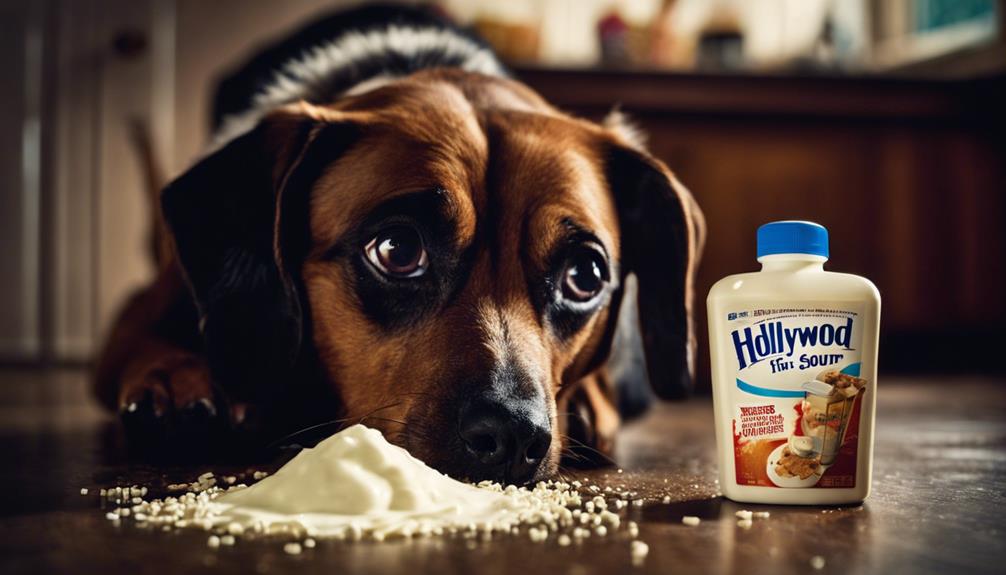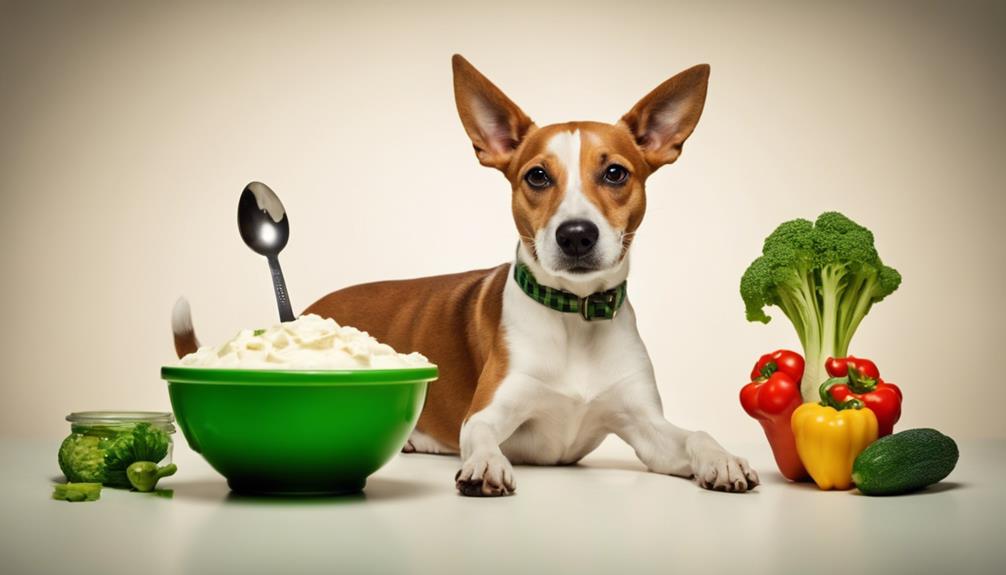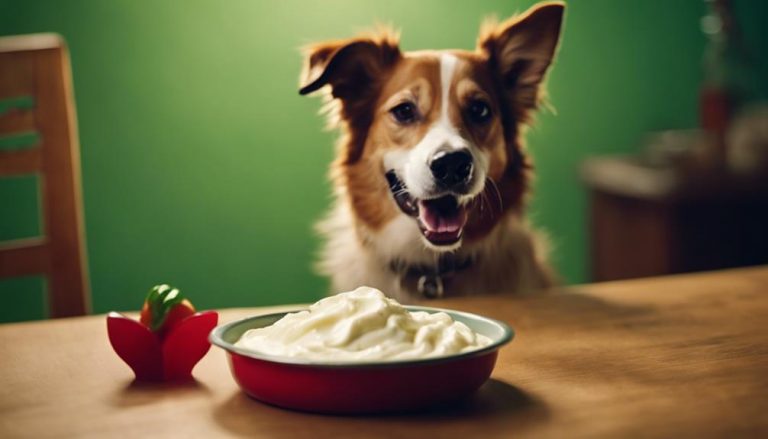Dogs Eating Sour Cream: Safety
Dogs can have sour cream in moderation. It’s important to note that sour cream is high in fats and doesn’t offer much in terms of nutrition for dogs. This dairy product could lead to weight gain or more serious conditions like pancreatitis if consumed in large amounts. Since many dogs can’t digest lactose well, eating sour cream might cause upset stomachs, including symptoms like diarrhea and gas.
Pet owners should be careful when giving their dogs dairy products. Opt for low-fat and lactose-free alternatives when possible. Always talk to your vet before introducing new foods into your dog’s diet and keep an eye on them for any negative reactions after they eat sour cream. It’s better to be safe and find other ways to treat your dog.
Key Takeaways
- Sour cream’s high fat could cause obesity in dogs.
- Dogs might get diarrhea from lactose in sour cream.
- Only give unsweetened sour cream sparingly as a treat.
Nutritional Considerations
Sharing sour cream with your dog might seem like a fun idea, but it’s wise to consider its nutritional content. Sour cream is rich in fat and not very nutritious, which could lead to health problems if your dog eats too much of it. Including sour cream in your dog’s diet could increase the risk of obesity and pancreatitis due to its high fat content.
Although it might be tempting to treat your dog with sour cream, moderation is key. The benefits are limited, and the risks, like dairy sensitivity, are real. Instead of sour cream, look for dairy alternatives that are lower in fat and lactose to keep your dog healthy.
Lactose Intolerance in Dogs

Many dogs struggle with lactose intolerance, meaning they can’t properly digest dairy due to lacking the lactase enzyme. If dogs with this condition eat dairy, they might face several uncomfortable symptoms.
These symptoms include digestive problems like diarrhea, gas, and bloating. They might also feel general discomfort and have an upset stomach. In more severe cases, vomiting can occur. Owners should watch their dogs closely after they eat dairy.
Given these potential issues, it’s wise to be cautious when giving dairy products such as sour cream to your dog. If your dog shows signs of lactose intolerance, talking to a vet is necessary. They can help adjust your dog’s diet to avoid digestive problems.
Potential Health Risks

When considering the health effects of lactose intolerance in dogs, it’s crucial to think about the risks tied to feeding them sour cream. Giving dogs sour cream occasionally might lead to trouble. Because of its high lactose levels, sour cream can trigger serious digestive problems such as diarrhea, vomiting, and gas.
The fat and calorie content in sour cream is also high, which might lead to weight gain and, in worse cases, obesity, making existing health issues even more severe. Some dogs might also have allergic reactions to dairy, including sour cream, so it’s vital to watch out for any negative reactions.
Considering these points, it’s clear that the potential benefits of feeding sour cream to dogs are far outweighed by the risks, making it a choice that could harm their health rather than help it.
Safe Serving Suggestions

When thinking about treating your dog with sour cream, it’s crucial to put their health first. This means taking steps to ensure that this treat is safe for them.
Before you even scoop out a bit of sour cream for your pup, talking to a veterinarian is a smart move. They can provide personalized advice based on your dog’s health, ensuring that sour cream won’t cause any issues. When you do decide to go ahead, make sure the sour cream is plain and unsweetened. Dogs have sensitive stomachs, so it’s best to avoid any added sugars or flavors that could upset them.
After your dog has had some sour cream, keep an eye on them for any unusual signs. This could include digestive discomfort or signs they might be allergic. It’s rare, but it’s better to be safe and monitor their reaction. Also, it’s good practice to treat sour cream as a special snack, not a daily diet staple. This helps prevent any potential health problems from arising due to overconsumption.
Dairy Alternatives

Choosing dairy alternatives for dogs is a smart move for their health, offering them the nutrients they need without the drawbacks of sour cream.
Plain yogurt is great for dogs because of its probiotics, which help keep their digestive system healthy. Another good choice is cottage cheese, which is low in fat but still tasty for dogs.
For those looking into options without dairy, pumpkin puree and cooked sweet potatoes are fantastic. These offer a healthy dose of fiber while being low in fat.
There are also specially made dog treats available that are designed to be both safe and nutritious for dogs. Choosing these alternatives over sour cream can lead to a more balanced diet for dogs.
Frequently Asked Questions
What Happens if a Dog Eats Sour Cream?
- Dogs may suffer stomach upset from sour cream ingestion.
- Lactose intolerance can result from consuming sour cream.
- Opt for safer snacks; adhere to feeding advice.
Can Dogs Have Cool Whip?
- Dogs shouldn’t eat Cool Whip; it’s full of artificial substances.
- Cool Whip may cause allergies in some dogs.
- Opt for safe, homemade dog treats instead.
Can a Dog Eat a Pringle?
- Pringles contain too much salt for dogs.
- Some flavors may harm your dog’s health.
- Offer safer snacks instead of Pringles.
Can Dogs Have Greek Yogurt?
- Dogs can eat Greek yogurt for probiotic health.
- Watch serving size and avoid added sugars or flavors.
- Check for signs of allergies in your pet.

